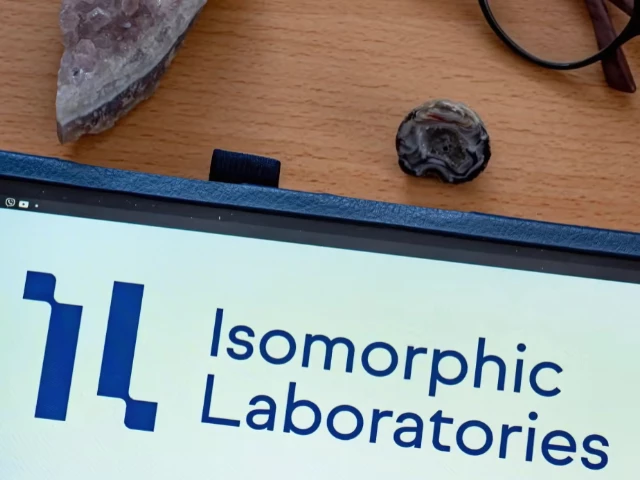Google-backed Isomorphic Labs to launch human trials for AI-designed drugs
Alphabet’s Isomorphic Labs is nearing human trials of AI-designed drugs following years of research and funding

Alphabet’s drug discovery arm, Isomorphic Labs, is preparing to enter a new chapter in its ambitious efforts to reshape medicine through artificial intelligence, with its first human clinical trials now on the horizon.
Colin Murdoch, the company’s president and also Google DeepMind’s chief business officer, confirmed to Fortune that trials for AI-designed drugs could begin in the near future.
“We’re staffing up now. We’re getting very close,” he said during an interview in Paris.
The London-based firm, spun out of DeepMind in 2021, was established off the back of AlphaFold, the AI system that stunned scientists by predicting protein structures with remarkable accuracy.
That success laid the foundation for a broader mission: to use AI to design new drugs faster, cheaper and with a higher chance of clinical success.
“There are people sitting in our office in King’s Cross, London, working, and collaborating with AI to design drugs for cancer,” Murdoch said. “That’s happening right now.”
The company was born from one of DeepMind’s most celebrated breakthroughs: AlphaFold, an AI system capable of predicting protein structures with a high level of accuracy. https://t.co/BIPSGjiH9C
— FORTUNE (@FortuneMagazine) July 6, 2025
After several years of building infrastructure and refining its approach, Isomorphic is now transitioning from early-stage discovery into clinical development.
According to Murdoch, “The next big milestone is actually going out to clinical trials, starting to put these things into human beings.”
AlphaFold’s evolution from predicting single protein structures to modelling interactions between proteins, DNA and drug molecules has proven critical to that progress.
It has enabled researchers to approach drug design with greater precision, a shift Murdoch believes will help unlock an era of AI-driven breakthroughs in medicine.
“This was the inspiration for Isomorphic Labs,” he said. “It really demonstrates that we could do something very foundational in AI that could help unlock drug discovery.”
Isomorphic Labs is reimagining drug discovery with the power of AI, and we’re scaling our ML team to support the rapid growth of our best-in-class AI models.
— Isomorphic Labs (@IsomorphicLabs) July 3, 2025
Heading to ICML and want to find out more? Register to connect with some of our ML team at ICML between 13-19 July:… pic.twitter.com/Ktsj00T9jv
The company’s ambitions are matched by growing financial and industry support.
In April 2025, Isomorphic raised $600 million in its first-ever external funding round, led by Thrive Capital. That followed major research agreements signed the previous year with pharmaceutical giants Novartis and Eli Lilly.
Under those partnerships, Isomorphic contributes to existing drug pipelines while also developing internal candidates in areas such as oncology and immunology. The aim is to license those compounds once early trial phases are complete.
“We identify an unmet need, and we start our own drug design programs,” Murdoch said. “We develop those, put them into human clinical trials… we haven’t got that yet, but we’re making good progress.”
Traditional drug development remains an expensive and risky process, with costs running into the millions and success rates in early trials often as low as 10%.
> Isomorphic Labs is preparing to launch human trials of AI-designed drugs.
— AshutoshShrivastava (@ai_for_success) July 7, 2025
> Mission: faster, cheaper, more accurate drug discovery using AI.
AI will make the world a better place.
One day, it might cure every disease and that future is got closer than we think. pic.twitter.com/PAmFo0gOG3
Murdoch believes Isomorphic’s hybrid model, combining AI with pharma expertise, could radically improve those odds.
“We’re trying to do all these things: speed them up, reduce the cost, but also really improve the chance that we can be successful,” he said.
Murdoch envisions a future where AI models could generate effective drug designs at the click of a button.
“One day we hope to be able to say — well, here’s a disease, and then click a button and out pops the design for a drug to address that disease,” he said. “All powered by these amazing AI tools.”



















COMMENTS
Comments are moderated and generally will be posted if they are on-topic and not abusive.
For more information, please see our Comments FAQ